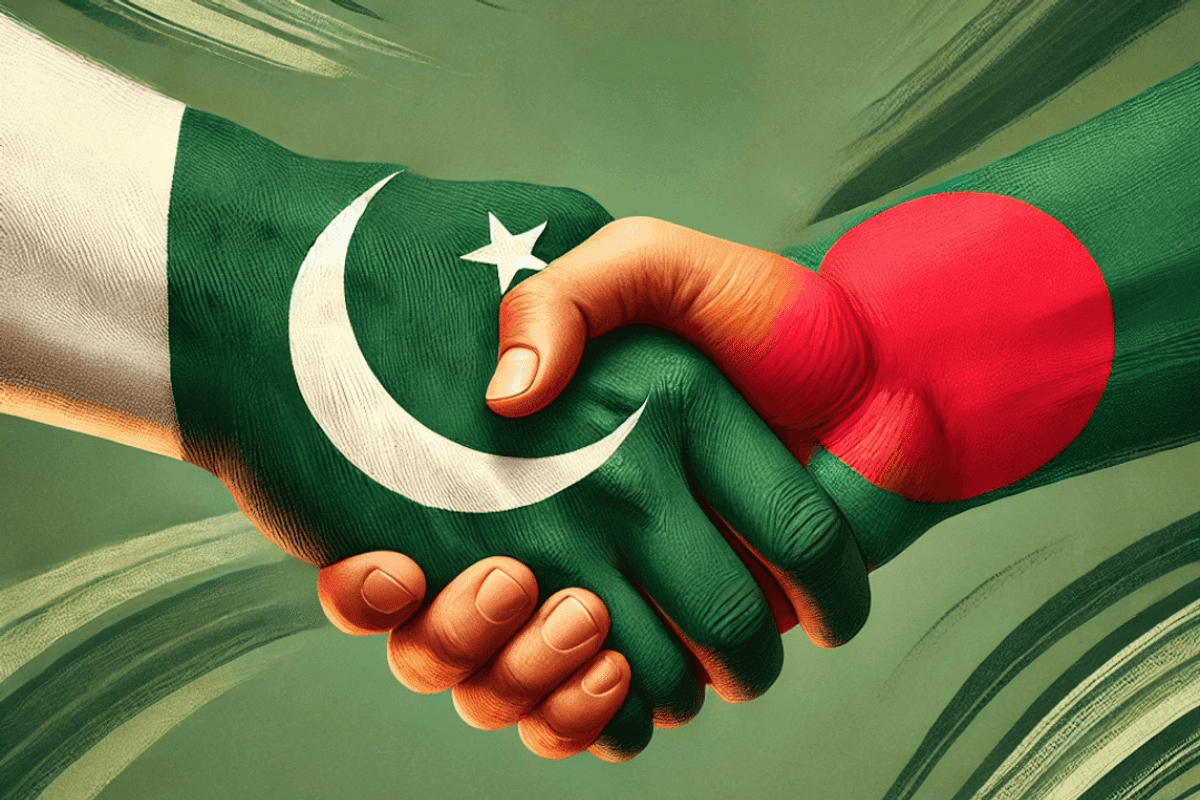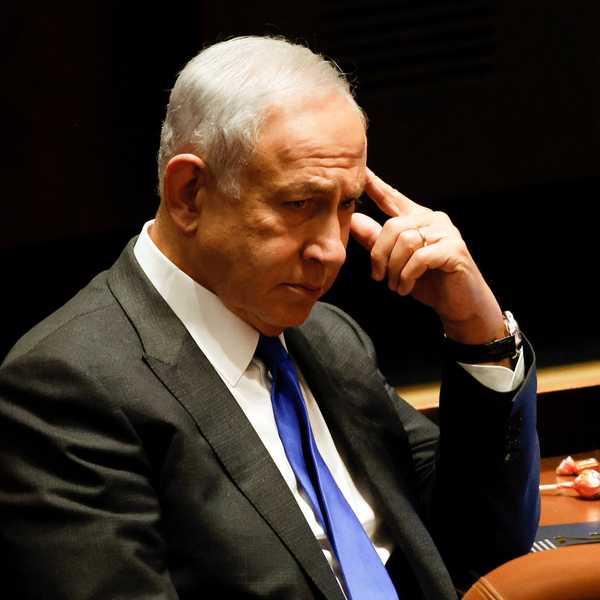Bangladesh's political shift offers window of opportunity to Pakistan
The fall of Hasina Wajid’s government offers a chance to reset strained relations

Wahid Ashraf

This is an AI-generated image
Former diplomat urges Pakistan to address its demons and talk about 1971
Many in Bangladesh view India's role in Bangladesh as overbearing
The student-led protests in Bangladesh which began in early July saw the ouster of longtime Prime Minister Sheikh Hasina – but only after at least 600 lives were lost.
Hasina, whose government had close ties to New Delhi, fled to India where she is living in exile.
Bangladesh's interim government headed by former banker and Nobel laureate Dr. Mohammad Yunus is expected to formally ask the Indian government to extradite her, putting the South Asian giant in a tough spot.
Experts say the latest situation has opened a window of opportunity for Islamabad to mend ties with Bangladesh, which separated from Pakistan in 1971.

Main players in Bangladesh politics
There are two main political parties in Bangladesh. The pro-India Awami League party is led by Hasina, the daughter of the country's founder Sheikh Mujibur Rehman.
Then there is the right-wing Bangladesh Nationalist Party (BNP) led by Khaleda Zia. Her husband, Zia ur Rehman was army chief when in 1975, Mujibur Rehman along with his family members was killed in a coup. Hasina and her family survived as they were in Europe.

During Hasina's rule, Khaleda Zia went to jail multiple times. She was released last month after Wajid's ouster.
Khaleda Zia and Wajid have taken turns to rule Bangladesh.
A smaller stakeholder is the religious Jamaat-e-Islami party, whose leaders were executed in Hasina's tenure for committing war crimes during the Bangladesh Liberation War.
The executions put a further dent in Pakistan's stalled relations with Bangladesh, as Islamabad - sympathetic towards Jamaat leaders for their support for Pakistan during 1971 events - said the trials held for elderly Jamaat-e-Islami members violated fundamental human rights.
There is growing resentment among Bangladesh's population over India's interference in the country, observers say.
Experts say that is the reason why during the recent protests many Hindu-owned businesses were attacked, to give a signal to India, where Prime Minister Narendra Modi is pushing a Hindutva ideology.
In 2021, mass protests broke out when Modi landed in Bangladesh on an official visit. At least 12 people died.
Resetting ties with Bangladesh
Last month, Pakistan's Prime Minister Shehbaz Sharif invited senior retired diplomats, including Pakistan's former high commissioner to Bangladesh, to huddle on recent changes in Dhaka and sought their input on how to reset ties with Bangladesh.
Pakistani diplomats told Nukta on condition of anonymity that Wajid's government was under so much pressure from India that appointments in civil service and promotions in the army also needed a nod from New Delhi. Vast population of Bangladesh never accepted Mujib as "Father of the Nation".

Pakistan's former high commissioner to Dhaka, Ashraf Qureshi, told Nukta: “The legacy of the 1971 war, the events leading to it, cast a dark shadow on our bilateral relations. Awami League with Sheikh Mujib as its leader led the 'liberation' struggle. Sheikh Hasina, Mujib's daughter, feels that she is destined to carry the legacy of the war. She identifies herself with the narrative of the war, in which Pakistan is painted as an enemy.”
Tit-for-tat moves of declaring diplomats as persona non-grata and asking them to leave resulted in major diplomatic spats, he said.
"Pakistan's reaction to the war crimes trial and execution of Jamaat-e-Islami leaders, who had aligned with Pakistan in 1971 was seen as a gross violation in Bangladesh's internal affairs," he said.
According to him, a major factor in frosty relations during Wajid’s time was her prioritizing relations with India. "This was partly the result of India's assistance to the Awami League during the 1971 war."
In his opinion, another factor was "the perception in Awami League circles, with good reason, that Pakistan supported Khaleda Zia's BNP against Awami League".
Senior journalist Mariana Babar echoed the same views.
“India was all-controlling, especially where Indian investments [in Bangladesh] were concerned. Delhi ensured that they had the biggest slice in investments. This suited Hasina to have the backing of an emerging regional superpower and did not resist interference as seen in cases of Nepal, Maldives, Bhutan and Sri Lanka which fought back from time to time," she told Nukta.
Way Forward
"After Hasina's departure, Pakistan faces its biggest regional diplomatic challenge," Babar further said.
If the Foreign Office handles the issue "with input but not controlled by any other institution", she said, "it will surely reflect on our trade and strategic ties".
Qureshi says any dialogue with Bangladesh should be exercised with caution.
"Pakistan should recognize that the situation in Bangladesh is still not stable. The architects of change, the young students still want a democratic dispensation, though they have indicated that they can live with Dr. Younus for the time being," he said.
"Generation Z still wields influence. The army, though in the background, provides the muscle for stability. In this scenario, Pakistan needs to make careful moves to engage the interim government without being overly euphoric," the former diplomat said.
He said Pakistan should engage in backdoor diplomacy and strengthen economic cooperation.
"We should promote people-to-people contact that should include exchanges of parliamentarians, students, academics, think tanks, and cultural troupes," he added.
Lastly, he said, "Pakistan should be ready to confront its own demons and address the legacy of the 1971 war that has clouded our relations with Bangladesh."
Pakistan should address three key issues raised by the people of Bangladesh: apologize for war atrocities, repatriate stranded Pakistanis and divide assets as they existed in 1971, he added.
"There are many innovative and emotionally sensitive ways of doing it without formally apologizing at the government level. Knowing the psyche of Bangladesh's people I am certain that this issue can be addressed,” he said.







Comments
See what people are discussing